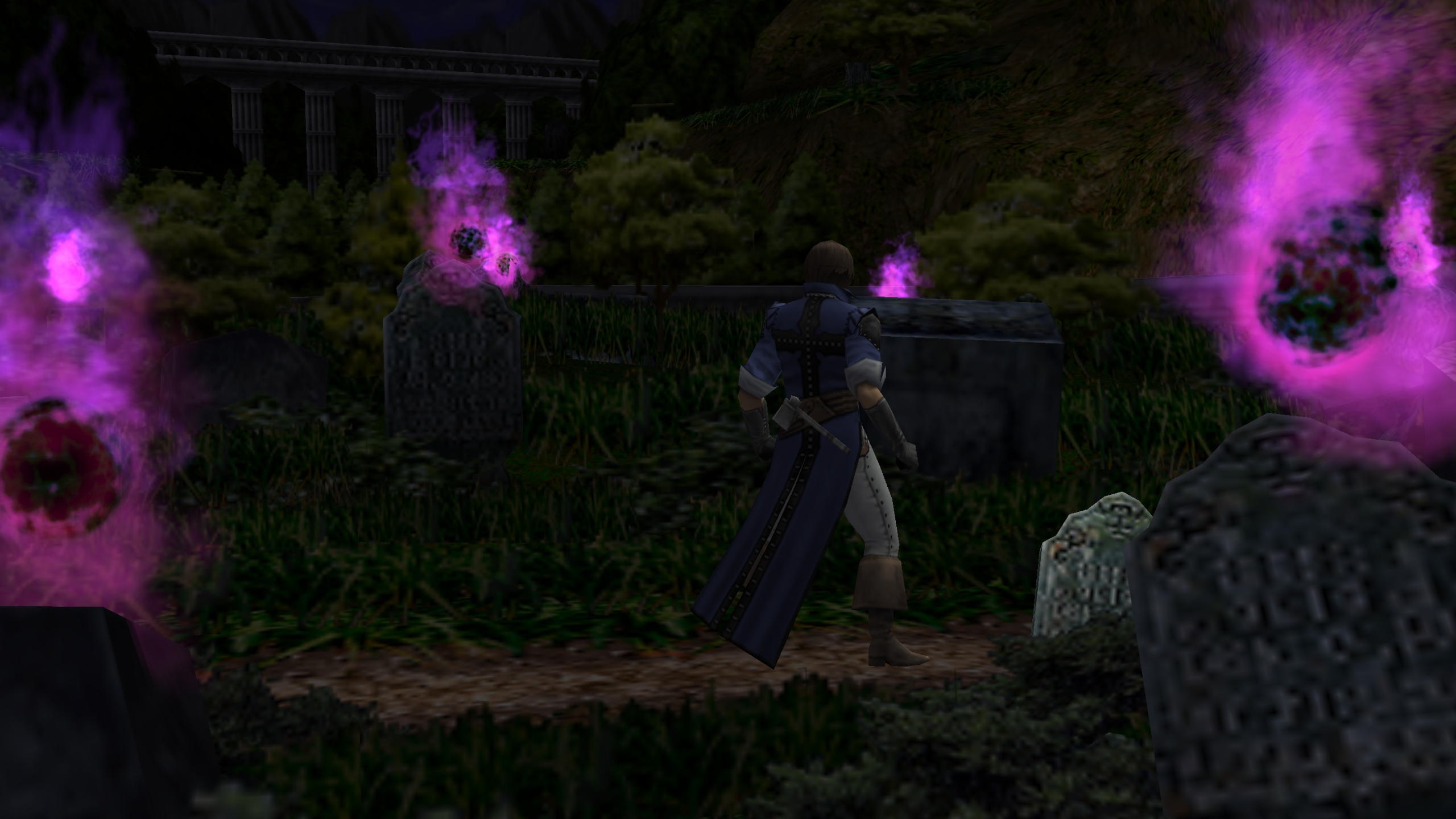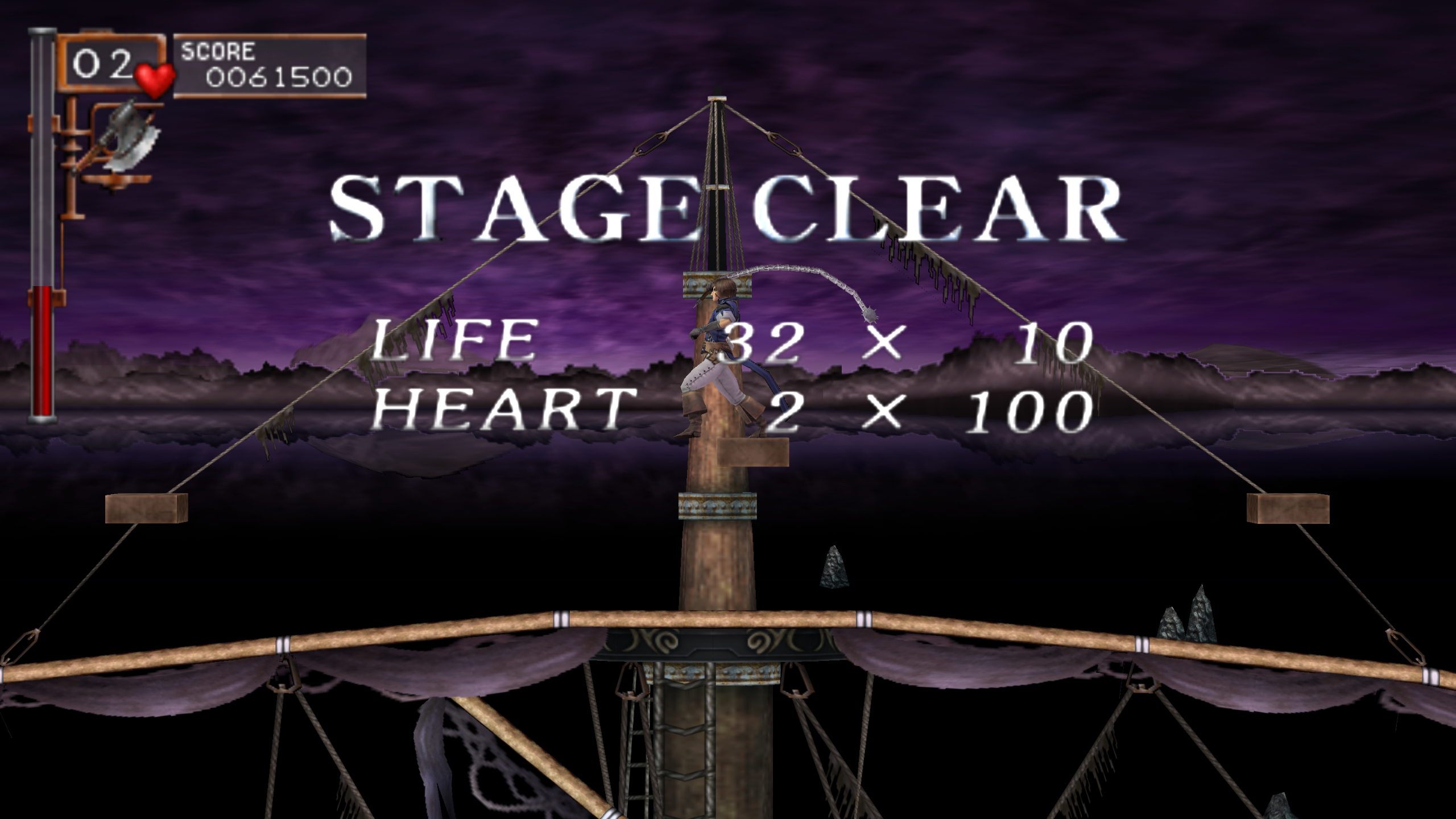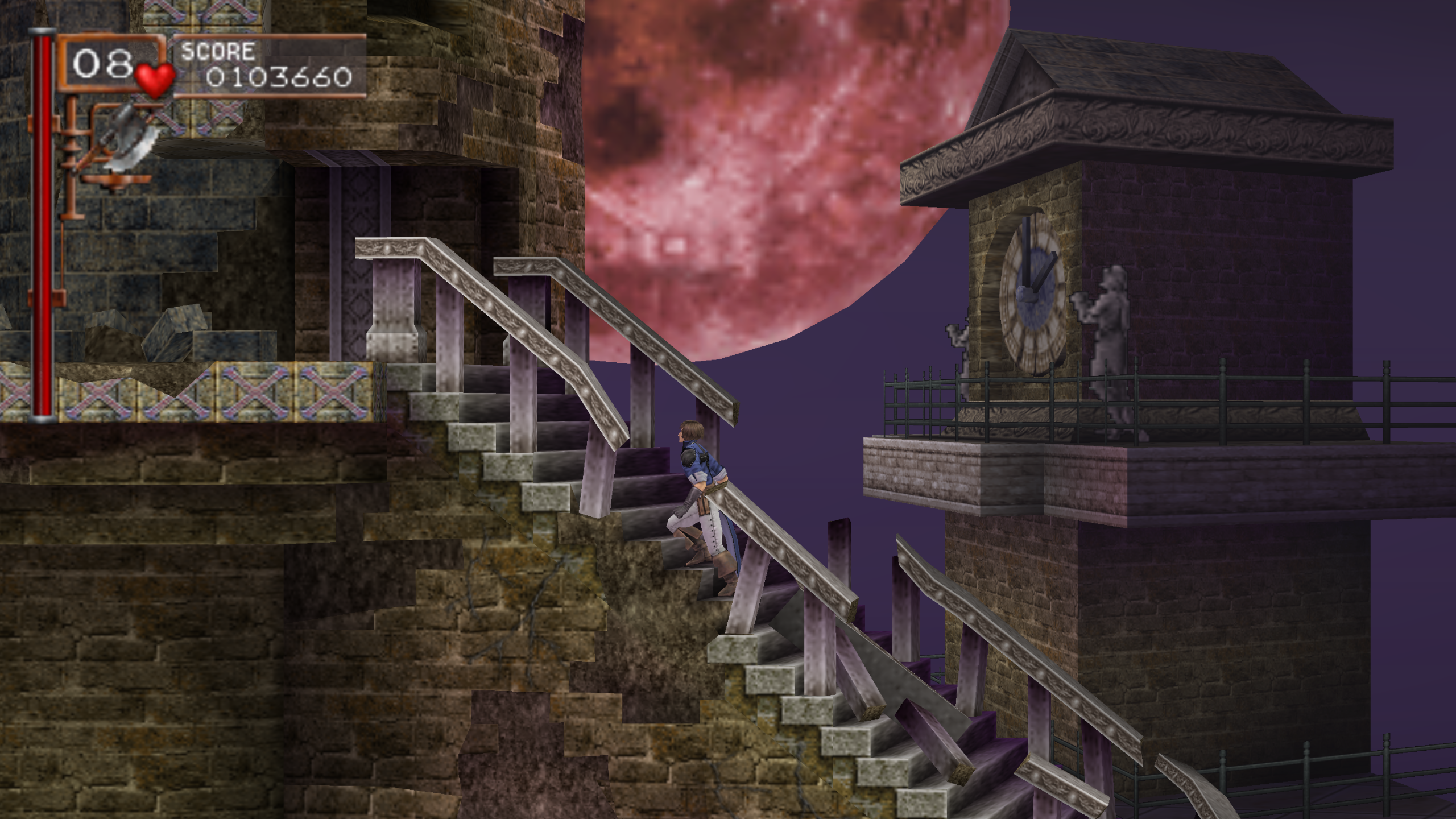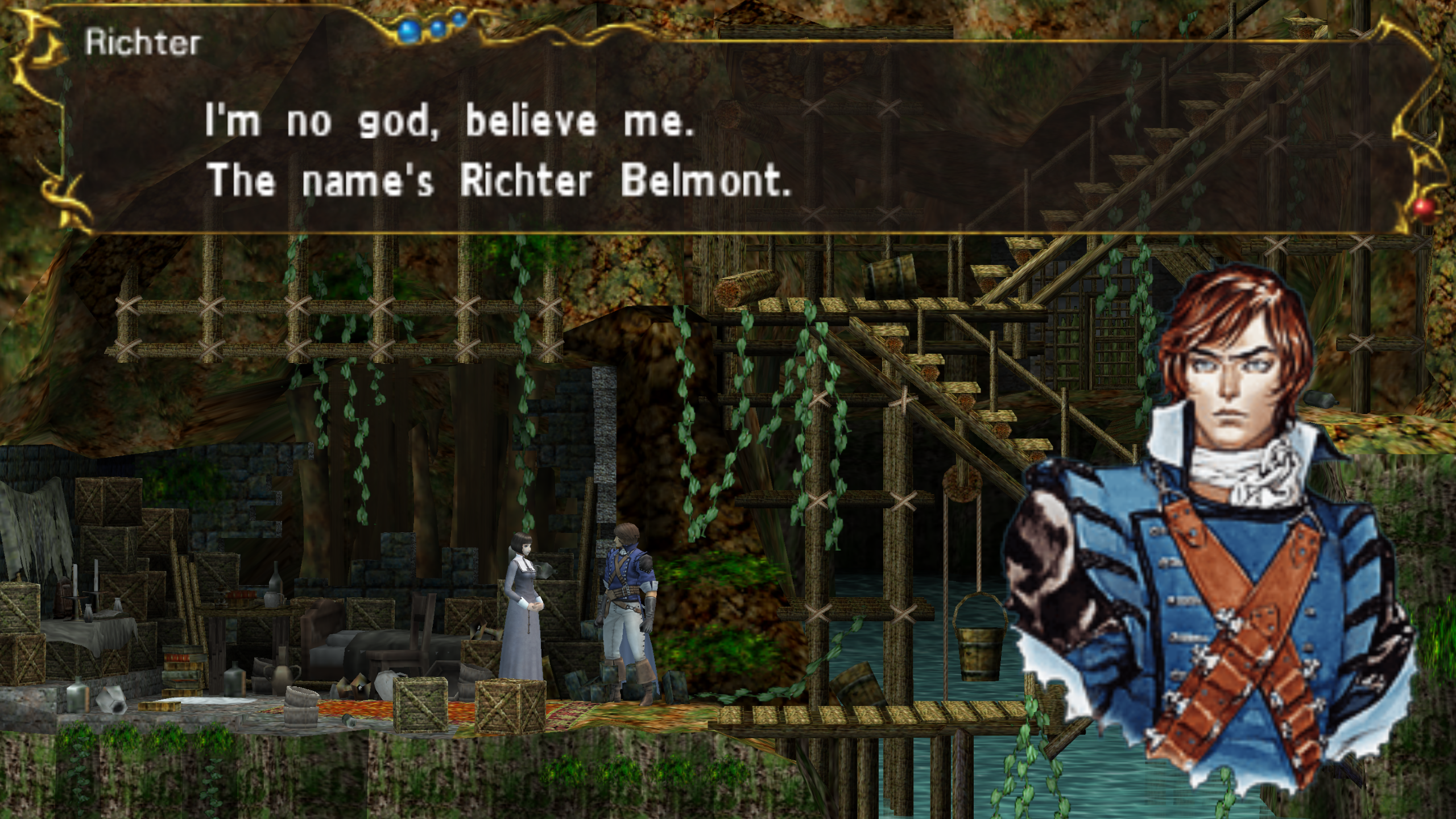Review: Castlevania: The Dracula X Chronicles
by William Hernandez
Richter Belmont's back in the limelight with the release of Castlevania: Nocturne on Netflix and its subsequent announcement of a second season being in the works. While there isn't a whole lot to say about his character in the show (for better or for worse), it did seem like an apt time to return to the games that made him one of the poster boys of the franchise. If you didn't know, Rondo of Blood actually has a remake on the PSP which I was just dying to try out. While the Dracula X Chronicles does include both the original Rondo of Blood and Symphony of the Night as unlockables, this review will solely focus on how the remade game feels as its own experience. But it is hard to just overlook the benefit of having those two classics included, so let's just say that this game is very much worth it beyond its main attraction. Now, let's go pay Dracula a long overdue visit.
Enjoyability: 10/12
No matter how hard the game gets, or perhaps because of how hard the game can get, the amount of satisfaction that comes with beating a stage only increases over time. Now, that doesn't mean that this game doesn't get real frustrating because it most certainly does, but it does feel like your efforts are sufficiently rewarded...by just making progress. The game isn't all that long so that's probably one reason why. Every win gets you palpably closer to tha t final fight. And the more you play, the more you learn. After just an hour or two of playing, you're going to be far more competent compared to your first few minutes as a vampire hunter if you're no Castlevania expert. And so, despite the difficulty, the game's still going to be fun to play for the most part until you hit a big roadblock (i.e. a boss). The bosses are not designed equally and some are much more annoying than others. The difficulty is easy to overlook (and is more than manageable) elsewhere, but the bosses can be brutal time wasters. If you're unfamiliar with the game, you may need to spend various attempts just trying to learn the boss' patterns. Enough deaths means a game over and that means redoing the whole stage just to get to the boss again. This mostly applies to later bosses, though, and mainly if you play as Richter (who is the harder character to play as). If you're the patient type, then you'll probably end up having a grand ol' time despite all that. Or you could just be good at the game. That works, too.

Gameplay: 8/12
Despite coming out in 2007, the Dracula X Chronicles doesn't feel modern in any kind of way when it comes to the gameplay. That's because the remake didn't even try to address any of the quirks of the older Castlevania titles. While I certainly appreciate it for staying true to its origins, there are problems that come with the traditional style. Firstly, the whip sucks as a weapon. Or rather, the whip sucks as a weapon given your movement options. Considering that you can only attack in one direction, you'd hope to get a favorable hitbox on that whip. If only. The range isn't too short or anything like that, but rather there are certain dead zones where you can't hit an enemy at all. Right below you or just above you, not even most subweapons can help you. It won't be a problem you'll face often, but it's an inconvenience that happens enough to be irksome. Mostly, it comes down to Richter (ergo, the player) feeling underpowered. Speaking of underpowered, item crashes don't feel satisfying enough. Yeah, yeah, they're not supposed to make clearing bosses easier, but the attacks should at least be doing more damage just to validate how cool they look. It's hard to realize just how bad Richter is until you switch to Maria (yes, you can play as her). Just her double jump alone allows her to make more agressive pushes while inheriting much less risk. Where Richter needs to full-on commit, Maria can back out on any moment's notice. It's easy to notice the difference in boss fights and stages crowded with lots of enemies. I appreciate Richter's backwards somersault, but its utility just doesn't even begin to compare. The gameplay is outdated and that's totally fine, but it definitely holds the game back just a bit.

Atmosphere: 12/12
If there's one thing that the Castlevania franchise tends to get right every time, it's the atmosphere. The music is beautifully arranged and there are so many great tracks in this game. It's almost hard to appreciate just how good most of the background themes are because you get spoiled early on and it just stays consistent throughout the rest of the game. I didn't expect a stage based entirely around a ghost ship to pass the vibe check, but it easily did. When the music's so good, you don't even question the journey you're on. But more seriously, the environments are also very well-designed. The burning village you pass through in the introductory level is a great tone-setter and there's a lot of variety as you go through the game: torture chambers, a cathedral, a river filled with frogs, a clock tower, and, of course, the castle keep leading to Dracula. PSP graphics aren't exactly mind-blowing, but they capture the mood of the game's gothic horror fairly well. You can really see it in the interior and enemy designs - a dark rusticness that is always unsettling. Everything just comes together in a gorgeous package.

Design: 11/12
As mentioned before, there's a good amount of variety to the game's scenery. That reflects itself well in how the game actually plays with each stage feeling relatively unique. At the same time, there's also something of a natural evolution of enemies to more adequately match your (hopefully, improved) skill level. So what you end up getting is a relatively smooth experience from beginning to end. There's a gradual increase in difficulty, but always something manageable when it comes to stage obstacles. The Dracula X Chronicles, just like Rondo of Blood, loves its mini-bosses which also help make every stage feel distinct. Your experience with some of them may not be the best, but you certainly won't conflate any memories. Some stages have way more depth than you'd expect so if you like exploring, you're going to have a good time finding secrets and collectibles. Nothing mandatory, but there's a lot more hidden within this game than you'd think.

Direction: 9/12
On the other hand, the game really should tell you more about what's available to you in the game. If you want one of the good endings, good luck trying to get there without any guide. You may know that you need to save the maidens, but there's not even so much as a hint as for where you need to go to actually do so. Maria Renard is the most likely maiden you'll save on a totally blind run and even the route to her isn't wholly sensible. But guess what? Saving Maria means you can't get to Annette without the use of the level select. You wouldn't know this, though, unless you looked it up. Although, I suppose, Annette is already locked behind saving the other two maidens which you wouldn't know about either. Considering that the basic narrative of this game is centered around Richter saving his girlfriend, it's criminal the lengths that you have to go to just to get to her. It's totally cool to have alternate stages, but making them highly important despite their obscurity just doesn't work. If you want a good run, you might want to do some intensive research just to make sure all your paths add up. No worse feeling than making progress and then later realizing that you needed to go an entirely different stage. The game is totally replayable if you want to fix past mistakes, but, c'mon, it's way too harsh with these objectives which aren't sufficiently worth your time.